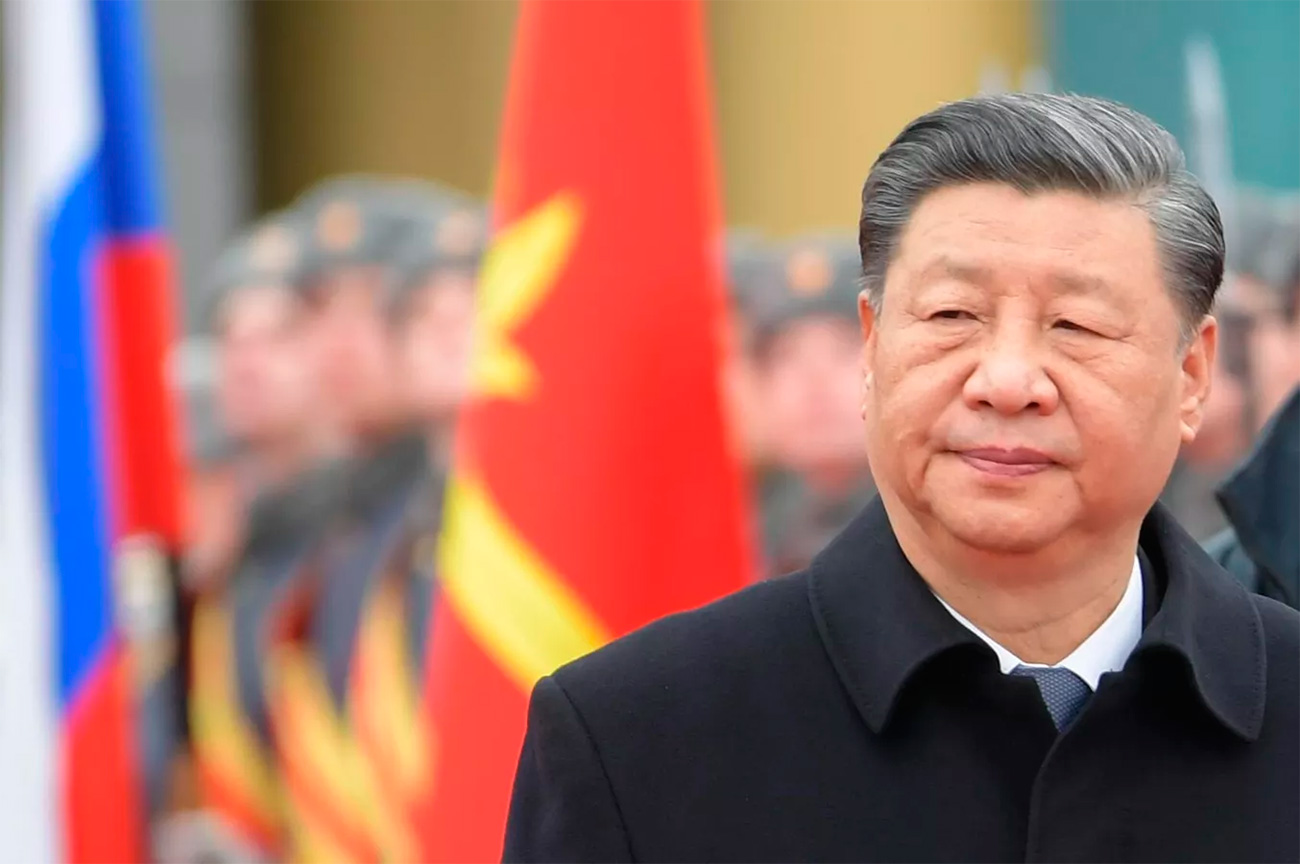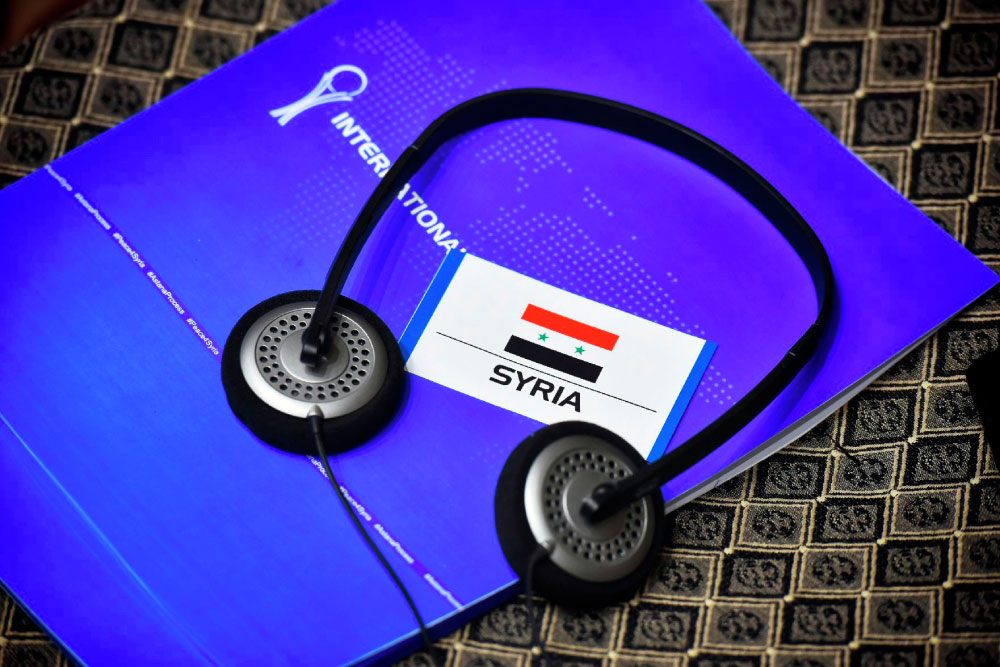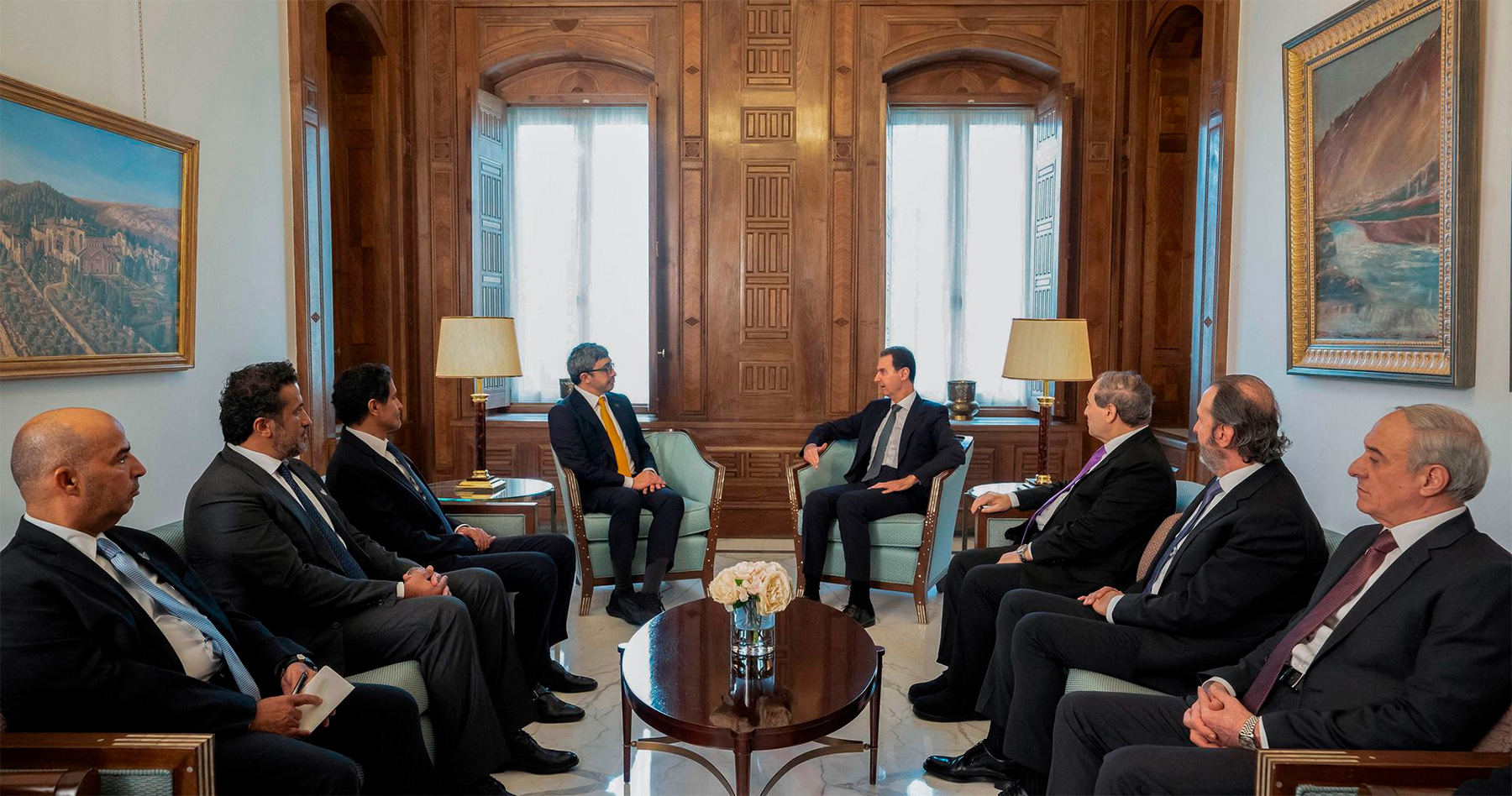Until recently, China stuck to the “stability through development” formula which implies staking on trade and investment. However, for China, the Saudi-Iranian consultations were a good opportunity to demonstrate its increased diplomatic capabilities, because Beijing was able to solve a problem that was beyond the reach of American and European diplomats. But more important for China itself is the fact that it was able to create prerequisites for reducing the tensions in the region, wherefrom it receives roughly 40–50% of its oil imports.
To the nations of the Middle East and the entire world, China has also demonstrated that it can be a viable alternative to the U.S. not only in energy, trade or technology, but also in addressing security issues. The visit of President Xi Jinping to the KSA last year, for example, showed that Riyadh sees China not only as an economic partner but also as a political force. This gives some observers good reason to discuss a new beginning in the Saudi-Chinese relations, heralding the onset of a new phase in the Middle East policy of Beijing which skillfully uses its ability to maintain contacts and trade with all regional powers, simultaneously.
However, one should not assume that the U.S. will end up losing. The strategic alliance between Washington and Riyadh will hold together, at least in the medium term, since Beijing has until recently declared its reluctance to make military and political commitments in the Middle East or deploy its troops in the region quite consistently.
China has effectively played the role of facilitator, but now the country will have to enforce the agreements. Here, one must remember that the “Iranian case” has several components in the eyes of the leadership of the neighboring Arab states: an expansionist regional policy, a nuclear program, ballistic missile and drone programs. Without all these issues addressed, genuine settlement and normalization is unlikely to happen. This will be the main challenge for China as a mediator.
Right now, the time is ripe for small steps towards restoring and strengthening of mutual trust between the sides. These may include measures to reject hostile rhetoric or to promote respective narratives through the media, measures to develop economic ties, and measures to ensure the security of shipping as well as counterterrorism in the Gulf area. These could be followed in a year or more by an extended dialogue. For now, détente and/or cold peace will be the immediate result of the deal.
In March 2023, seven years after diplomatic relations were severed, the Kingdom of Saudi Arabia (KSA) and the Islamic Republic of Iran (IRI) have agreed to reopen their embassies. This decision opens up the possibility of reducing tensions in the Gulf and, in the long term, in the entire region of the Middle East. Notably, both sides have stated the need to respect sovereignty, not interfering in the internal affairs of other states. This may entail not only the reopening of diplomatic representative offices but also a willingness to restore mutual trust through the commitment not to conduct subversive activities against each other. The KSA suspects Iran of supporting Shia organizations in the Kingdom, while Tehran accuses Riyadh of waging a large-scale propaganda campaign and sponsoring the opposition.
Symbolically, soon after the agreement was signed, the Saudi monarch invited the Iranian president to visit the kingdom. Such a gesture confirms peaceful intentions, while serving as further evidence of the willingness to continue the dialogue. For its part, Iran, according to some foreign media reports, has agreed to help resolve the conflict in Yemen, where it supports the Ansar Allah movement that has been fighting against Saudis since 2015. In other words, we can hope for de-escalation not only in the Gulf itself, but also in the south of the Arabian Peninsula. Without a stabilization in Yemen, direct security of Saudi Arabia can never be ensured, nor will the investment environment improve. After all, the Kingdom expects to attract billions of dollars in mega development projects as it anticipates to build new cities of the future.
The KSA’s decision to restart diplomatic relations with IRI had been preceded by similar steps on the part of two other Gulf monarchies—the UAE and Kuwait. In other words, this was part of the regional trend whereby the Arab monarchies began repudiating the policy of “maximum pressure” on Iran, promoted by the U.S. and Israel, looking for ways to agree on a peaceful coexistence instead. It should be noted that Saudi officials acknowledged—in private conversations at least as recently as 2017—that Iran is one of the regional powers having the right to demand that its interests be taken into account by the rest of the states. In a nutshell, the key concern was defining the red lines and boundaries for spheres of influence, to be followed by the enforcement of such agreements.
The current Saudi-Iranian arrangements should not be overestimated, since the open de-escalation process has barely kicked off and might easily fall victim to some “black swans.” It makes more sense to review the ongoing rapprochement between the KSA and the IRI within the logic of the “regional Cold War”, which means that we now witness more of a détente rather than a full-fledged reconciliation.
The agreement’s benefits
At first glance, the reopening of embassies might seem a technical step of low significance. But even this would go a long way toward reducing tensions in the Gulf. With functional diplomatic missions in place, there will be direct channels of communication for the dialogue as well as an increased transparency. This is an extremely important step, because the Cold War has shown that each side tends to exaggerate the opponent’s capabilities and the level of threat emanated in times of confrontation, whereas misperceptions about the adversary almost inevitably provoke an arms race, raising the risk of preventive wars.
For Saudi Arabia, détente with Iran is a chance to refocus on its own development programs, channeling more resources into their implementation, given that this will largely determine the political future of the Kingdom’s de facto ruler, Crown Prince Mohammed bin Salman. The current leadership is forced to fight on two fronts at once—against Iran and its allies as well as against opponents within the ruling elite and in society.
If the agreement is implemented and the peace dialogue becomes more intense, one can expect not only a promotion of the KSA security but also a substantial easing of Iran’s international isolation. There is a gleam of hope for the restoration and development of economic ties within the Gulf. As regards Saudi Arabia, it is premature to talk about cultivating closer economic ties with Iran, while this is a very topical issue for other Gulf states, especially the UAE. For example, the UAE’s trade turnover with Iran reached the level of USD 20 billion before international sanctions were imposed.
Iran, too, should be interested in reducing tensions. The IRI has learned to survive under sanctions, but the nation’s further economic development is extremely difficult due to the lack of access to investment and technology. Without economic growth, it would be next to impossible to maintain social stability. Regular depreciations of the rial, a currency that has fallen by half against the U.S. dollar since the start of the protests in September 2022, is a clear indication of the challenging economic situation.
In the medium term, de-escalation of Saudi-Iranian relations and renewed economic cooperation could be followed by steps to create a new security architecture in the Gulf, which would include various mechanisms to control military activities and information exchange. Notably, a sustained Saudi-Iranian détente would call into question the U.S. project to create an Arab-Israeli coalition for Iran deterrence. The emerging rumors about Israel’s cancellation of an arms deal with a Middle Eastern country (presumably the UAE), at least a billion U.S. dollars’ worth, seems to be an indication of the nascent trend.
New role for China
It is fair to say that the Saudi-Iranian negotiations took a long time, first mediated by Oman and then Iraq. One of the main problems for a future agreement, though, was the lack of a reliable guarantor. From this perspective, China’s involvement played a crucial role, since Beijing enjoys close and, crucially, trust-based relationships with both Tehran and Riyadh. Until recently, China stuck to the “stability through development” formula which implies staking on trade and investment. However, for China, the Saudi-Iranian consultations were a good opportunity to demonstrate its increased diplomatic capabilities, because Beijing was able to solve a problem that was beyond the reach of American and European diplomats. But more important for China itself is the fact that it was able to create prerequisites for reducing the tensions in the region, wherefrom it receives roughly 40–50% of its oil imports.
To the nations of the Middle East and the entire world, China has also demonstrated that it can be a viable alternative to the U.S. not only in energy, trade or technology, but also in addressing security issues. The visit of President Xi Jinping to the KSA last year, for example, showed that Riyadh sees China not only as an economic partner but also as a political force. This gives some observers good reason to discuss a new beginning in the Saudi-Chinese relations, heralding the onset of a new phase in the Middle East policy of Beijing which skillfully uses its ability to maintain contacts and trade with all regional powers, simultaneously. Yet, only time will tell whether China has enough economic clout to act as an effective mediator and guarantor of the agreements reached. Obviously, the first test will be its involvement in the Saudi-Iranian de-escalation.
China’s success came against the backdrop of declining U.S. interest in the Middle East. In the eyes of regional public opinion, this casts somewhat of a shadow on the reputation of the United States as a traditional guarantor of regional stability, already tarnished by its hurried withdrawal from Afghanistan and its inability to protect Saudi Arabia from Yemen’s missile strikes.
However, one should not assume that the U.S. will end up losing. The strategic alliance between Washington and Riyadh will hold together, at least in the medium term, since Beijing has until recently declared its reluctance to make military and political commitments in the Middle East or deploy its troops in the region quite consistently. In general, however, the Saudi-Iranian détente is quite in Washington’s interest because it spares Washington—at least, for the time being—the need to spend resources on ensuring security of its key ally in the Middle East. Moreover, Washington admits that the U.S. could not play the role of mediator between Riyadh and Tehran in principle, because the Biden administration does not have enough confidence in either side.
The future of the deal
China has effectively played the role of facilitator, but now the country will have to enforce the agreements. Here, one must remember that the “Iranian case” has several components in the eyes of the leadership of the neighboring Arab states: an expansionist regional policy, a nuclear program, ballistic missile and drone programs. Without all these issues addressed, genuine settlement and normalization is unlikely to happen. This will be the main challenge for China as a mediator.
For the Arabian monarchies, it is the revision of Iran’s regional policy and the curbing of its activities that are key to a settlement. Therefore, the first test for the Saudi-Iranian deal will be the ability of both parties to freeze, if not resolve, the conflict in Yemen, and then there will come the turn of more complicated cases, such as Iraq, Lebanon and Syria. Moreover, as the experience of the strikes on the Saudi oil refinery in 2019 showed that the security of the KSA depends no less on developments in Iraq than it does on the situation in Yemen. As for the nuclear issue and Iran’s military capabilities, these are likely to be put on hold.
Right now, the time is ripe for small steps towards restoring and strengthening of mutual trust between the sides. These may include measures to reject hostile rhetoric or to promote respective narratives through the media, measures to develop economic ties, and measures to ensure the security of shipping as well as counterterrorism in the Gulf area. These could be followed in a year or more by an extended dialogue. For now, détente and/or cold peace will be the immediate result of the deal.







